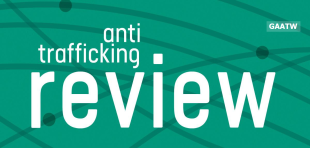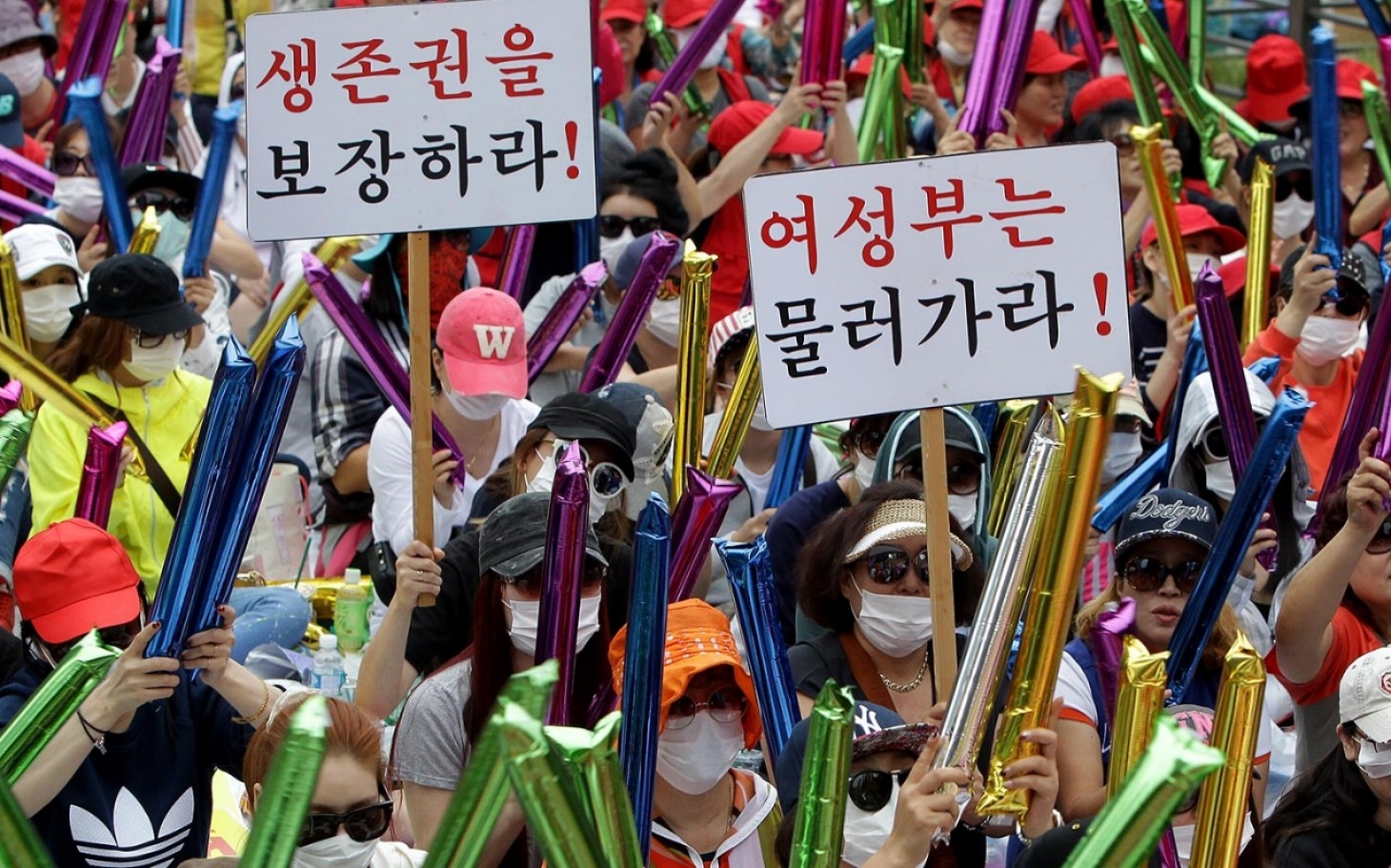Seeing is Disbelieving
 Indian sex workers’ protest in Maharashtra, India (Photo Credit: VAMP)
Indian sex workers’ protest in Maharashtra, India (Photo Credit: VAMP)
Seeing is Disbelieving
Too many anti-trafficking activists wrongfully conflate “sex trafficking” with “sex work”. Sex trafficking is the act of “human trafficking for the purpose of sexual exploitation”. Sex work is the “consensual exchange of sexual labour or sexual performance for compensation”.
Two common claims among anti-prostitution activists are that even consensual sex-for-compensation exchanges between two adults are intrinsically exploitative, and that the global sex workers’ rights movement is dominated by white sex workers in rich developed countries.
Seeing is Disbelieving is a collection of images* from sex workers’ rights protests in developing nations on March 3rd, 2012, on the occasion of the International Sex Workers’ Rights Day. The messages on their placards, T-Shirts, masks and red umbrellas tell you what sex workers themselves think about their work and needs.
Do you live in a developing country and have taken photos of sex workers’ protests on March 3rd? Please leave a comment below or contact me via yongsagisa[at]gmail.com
Reading is Disbelieving
Read and judge for yourself who sounds reasonable and who doesn’t.
‘Myths About Human Trafficking‘ by Ronald Weitzer, Professor of Sociology at George Washington University. Weitzer has been highly critical of the abolitionist position on prostitution and the conflation of all sex work with sex trafficking. While agreeing that sex trafficking is a real phenomenon, he argues that the scale of it has been greatly exaggerated by prostitution abolitionist organisations.
‘Why I Made the Choice To Become A Prostitute‘ by Melissa Farley and Nikki Craft. Farley is an American clinical psychologist, researcher, and a feminist anti-pornography and anti-prostitution activist. She is a co-founder of Prostitution Research & Education, a nonprofit organisation based in San Francisco which provides information about trafficking and prostitution. Nikki Craft is an American political activist, radical feminist, artist and writer.
Click here to open the Seeing is Disbelieving album on Research Project Korea’s Facebook page (no account required).
Please also see further albums from sex workers’ protests in South Korea and Cambodia.
*Did you take these photos? Please contact me and I will add your name to your photo(s).








Most problems in Cambodia, including sex trafficking, corruption, and human rights abuses may be blamed on poverty and the destruction of social and physical infrastructure stemming from the country’s tragic past, namely, the Khmer Rouge and the use of Cambodia as turf for Cold War adversaries.
May 12, 2012 at 2:02 pm
Thank you for your comment. I had nothing to add if you hadn’t used the term ‘sex trafficking’. As controversial as the term ‘trafficking’ alone already is, I believe there’s currently little hope that anyone is willing to open that can of worms to find a more suitable term. But while one could argue that ‘sex trafficking’ is just as suitable as ‘drug trafficking’ to describe the “recruiting, transporting, transfering, harbouring or receiving” involved with illegal trade, or any trade for that matter, ‘sex trafficking’ has become a tool of prostitution abolitionists to generate the impression that the majority of human trafficking cases are related to forced prostitution. I could go on about this but instead, I’m giving you (and others) this article as a starting point.
Ronald Weitzer
The Social Construction of Sex Trafficking: Ideology and Institutionalization of a Moral Crusade
http://tinyurl.com/84ty74h
Ronald Weitzer
Myths About Human Trafficking
http://tinyurl.com/69vj68s
May 13, 2012 at 2:10 pm